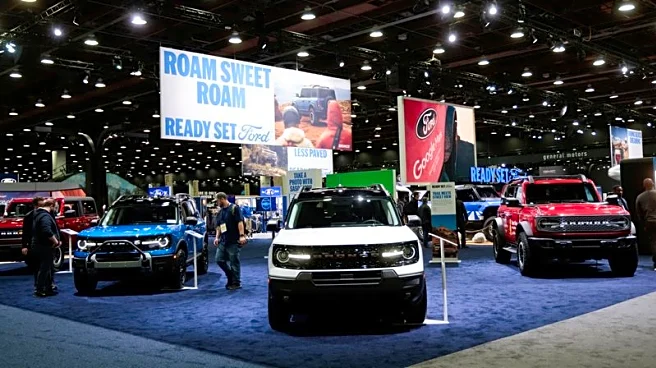What's Happening?
In 2025, the hospitality industry is experiencing a significant shift as Airbnb's growth surpasses that of traditional hotels. Airbnb benefits from increased global bookings and a strong financial position,
despite challenges such as oversupply and regulatory pressures. The hotel sector is striving to maintain stability in a low-growth environment, supported by regulatory measures that limit short-term rental competition in urban areas. The luxury segment of the hotel market shows resilience with robust RevPAR growth, driven by less price-sensitive clientele and a return of corporate travel. In contrast, economy and midscale hotels are underperforming due to heightened price sensitivity among their core customers.
Why It's Important?
The evolving dynamics between Airbnb and traditional hotels highlight a permanently segmented market where each model leverages its strengths to serve distinct traveler needs. Airbnb's growth reflects a shift in consumer demand towards short-term rentals, favoring longer stays and unique experiences. Meanwhile, hotels focus on service-dependent travel, benefiting from regulatory support that reduces competition from STRs. This nuanced competition shapes the future of the hospitality industry, impacting pricing strategies, occupancy rates, and market share distribution.
What's Next?
Both sectors are adapting to the changing landscape, with hotels focusing on stabilization and strategic entrenchment rather than regaining significant market share from Airbnb. Regulatory changes continue to reshape the market, with cities implementing stricter rules for STRs to manage their impact on housing and neighborhoods. Airbnb's fee overhaul aims to improve price transparency, potentially altering consumer choices and narrowing the perceived price gap between STRs and hotels.
Beyond the Headlines
The competition between Airbnb and traditional hotels may lead to innovative business models and strategic partnerships as each sector seeks to capture growth and meet evolving traveler expectations. The rise of 'bleisure' travel, driven by remote work, favors STRs for longer stays, offering amenities like kitchens and workspaces that hotels lack. This trend could influence future hospitality offerings and consumer preferences.












